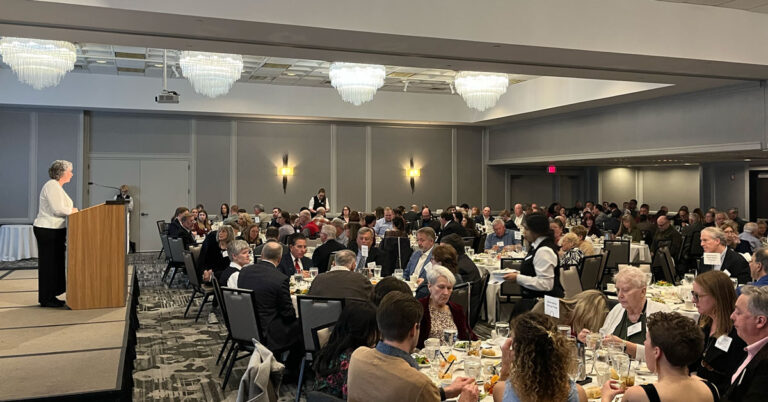Attitudes on industrial hemp are changing statewide after the first growing season in more than six decades, leading farmers and legislators to believe that it could be the next “huge cash crop.”
One of the boosters is the leading author of legislation that created the state’s hemp pilot program, Sen. Patrick Testin, who predicts Wisconsin will become the top producer of hemp within the next decade.
“I think within five to 10 years, we are going to see Wisconsin be the No. 1 producer and processor of hemp in the entire country,” Testin told WisPolitics.com.
Hemp has not been widely planted in Wisconsin since 1957 and has been outlawed in the United States since 1970 when it was lumped in with its psychoactive cousin marijuana and classified as a Schedule I narcotic by the Drug Enforcement Agency under the Controlled Substances Act.
But the 2014 Farm Bill passed by Congress contained a small section that drew distinctions between marijuana and industrial hemp and allowed states to grow hemp “under an agricultural pilot program.”
Wisconsin took advantage of the opportunity by passing Act 100 in 2017. That authorized the Department of Agriculture, Trade and Consumer Protection to develop a pilot program to restart industrial hemp farming in the state.
Testin said expectations for the pilot program were tempered at first.
“Initially when we set out on this process, we figured if we could have had a few dozen growers sign up for the program that would have been a great start,” he said.
Testin feared that the legal ambiguity around the crop would scare away farmers. While the 2014 Farm Bill allowed states to set up pilot programs to grow industrial hemp, it did nothing to address hurdles the crop faced in the marketplace.
The 2016 federal government funding bill contained a provision that stripped government agencies of funds “to prohibit the transportation, processing, sale or use of industrial hemp.” But hemp and its products were still classified by the DEA as a Schedule I and by the letter of the law, it remained illegal to transport or sell across state lines.
But a DATCP spokeswoman said the popularity of the pilot program soared from the outset.
“We set up an email distribution list for people who had expressed interest and we must have had between 600 and 700 people on that list,” said DATCP spokeswoman Donna Gilson.
Gilson said DATCP officials were so overwhelmed with calls and emails about the program that they struggled to fulfill their normal duties as they rushed to get information out to interested farmers.
DATCP issued 242 grower licenses and 93 processor licenses in the first year, kicking the program off with a bang that few industry experts predicted.
But the early enthusiasm was not matched by results. Gilson said the 2018 crop yields were affected by unseasonably wet weather, inexperienced growers and growing pains in the marketplace.
Rep. Tony Kurtz, who was granted a grower license but did not plant the crop, said even experienced farmers didn’t fare well in industrial hemp’s maiden growing season.
“There’s a pretty big farmer in my area and he did 17 acres of hemp and he told me he would never grow it again because he said ‘I can’t sell it,'” said Kurtz, R-Wonewoc.
Gilson said that was a fairly common issue and by her estimation, “almost no one made a profit.”
The hemp industry bottlenecked around what Kurtz called the “yin and yang” relationship between a
“Processors don’t want to come in unless they have the growers. Well I’m a grower, and I don’t want to grow it unless I’ve got the processors,” he said.
But Testin said the legal uncertainty that surrounded industrial hemp coupled with sky-high costs meant processors had to proceed with caution in the first growing season.
“I get where the processors are coming from, because for them to process some of this stuff, you’re talking a large capital investment,” he said.
That legal uncertainty was resolved when Congress passed the 2018 Farm Bill in December, removing restrictions on cultivation, sale, transport and possession of hemp-derived products.
The DEA also removed hemp from the most restrictive Schedule I and reclassified it as Schedule V, a category that features over-the-counter cough medicine Robitussin.
“From a federal standpoint, [the 2018 Farm Bill] just reassures people this is legal, you can invest in it, you can get a loan for it,” said Kurtz.
And Testin believes new regulations and legal guidelines around industrial hemp will help to resolve the processor logjam that plagued the initial pilot program.
“I think you’re going to see some folks on the processing side who sat on the fence in Year 1 of our hemp program are going to say, ‘The feds gave the green light so let’s do this,'” he said.
With the changes at the federal level, both lawmakers believe Wisconsin is on the verge of breaking through as a national leader in the hemp industry.
Kentucky currently leads the way nationally, but according to the latest data from DATCP and Kentucky’s Department of Agriculture, Wisconsin licensed 32 more growers and 21 more processors than Kentucky in 2018.
But when it comes to farming hemp, “experience matters.” Kentucky’s pilot program has been in place since 2014, and the extra four years appear to have given the Bluegrass State a leg up in standard production metrics: planted acres and harvested acres.
DATCP has yet to compile official acreage figures, but the Wisconsin Hemp Farmers & Manufacturers Association estimated that growers planted 1,850 acres, a number dwarfed by the 6,700 acres Kentucky reported for the 2018 growing season.
Kurtz estimated it would take around six more years before Wisconsin overtakes the national leader.
In the meantime, he says with commodity prices nearing rock bottom, the flexibility that hemp offers could make it the “next very lucrative cash crop.”
“This crop provides so many different avenues where somebody can find a niche,” said Kurtz.
Hemp can be grown and harvested for three purposes: fiber, which has uses ranging from clothing to home insulation to plastic; seed, which is edible and highly nutritious or could be used to create biofuel; and flowers, from which the increasingly popular cannabidiol, or CBD oil, is extracted.
Kurtz plans on targeting seeds when he plants industrial hemp on his organic farm later this year, though he acknowledges that may not be the most savvy business plan.
A report from from the Hemp Industry Daily shows that among the top 10 states in hemp production in 2018, the median price per pound of flower was 100 times greater than the median price per pound of seed and 1,000 times more expensive than the median price per pound of fiber.
The Wonewoc Republican says increasing demand for CBD oil — which proponents say can can help with everything from anxiety and cognition to movement disorders and pain — has driven up the cost of flowers.
The medical efficacy of CBD oil has yet to be fully studied, though. Clinical trials have concluded that CBD oil is an effective remedy for certain types of childhood epilepsy, and the FDA has approved a CBD-based drug for that purpose. But research is still ongoing as to its effectiveness treating other ailments.
But Kurtz said “the cat is already out of the bag” when it comes to CBD oil.
In the meantime, Testin and Kurtz are focused on giving hemp farmers and processors “as much freedom as humanly possible” to grow industrial hemp.
The two are currently working on legislation that would allow the industry to “move forward with confidence.”
“Are we there yet? The answer is no, but i think this bill provides the blueprint to move forward,” said Kurtz.
Meanwhile, DATCP reports it is currently on pace to double the number of licences issued as the state attempts to catch national leaders.
“My prediction is we’ll be in the top five in year two, and I think moving forward, we’re going to give Kentucky a run for its money,” said
For more, visit WisPolitics.com
The Capitol Report is written by editorial staff at WisPolitics.com, a nonpartisan, Madison-based news service that specializes in coverage of government and politics, and is distributed for publication by members of the Wisconsin Newspaper Association.
Copyright © WisPolitics.com



